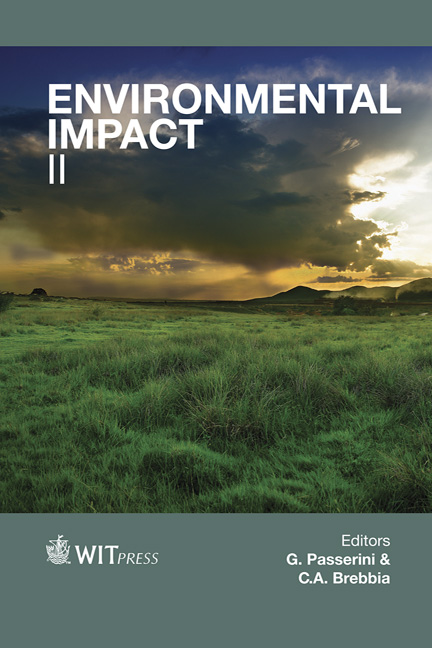Water Use Efficiency As An Indicator Of Environmental Impact Of Irrigated Crops Under Subtropical Conditions
Price
Free (open access)
Transaction
Volume
181
Pages
9
Page Range
455 - 463
Published
2014
Size
528 kb
Paper DOI
10.2495/EID140391
Copyright
WIT Press
Author(s)
G. A. de Medeiros, F. B. Arruda, A. I. Ribeiro, E. C. Guimarães, R. M. Longo & F. A. G. V. Reis
Abstract
Water use efficiency (WUE) is an indicator that integrates aspects related to environment, technology, economy and agronomy, so it has a potential to be used in the analyses of the sustainability in agriculture. The main goal of this research was to evaluate the WUE as an indicator of environmental impact for irrigated beans, under sub-tropical climate. The experiment was performed in the city of Campinas, state of São Paulo, Brazil. WUE was assessed in the bean crop sown in the field, under two planting densities: 14 plants m-2 and 28 plants m-2. A third treatment, corresponding to a planting density of 25 plants m-2, was performed in four lysimeters, under an optimized soil and water management that permitted a potential yield to the variety of bean evaluated. Evapotranspiration was measured along the cycle from the water balance and the WUE observed in the field was compared to that measured in the lysimeters, generating an efficiency index. The WUE did not differ statistically (P < 0.05) among the treatments, reaching 0.630 kg m-3, 0.693 kg m-3 and 0.710 kg m-3 for 14, 28 and 25 plants m-2 treatments, respectively. These results lead to an efficiency of 88.7% and 97.6% for 14 and 28 plants m-2 treatments, respectively, demonstrating the sensitivity of this integrating parameter to soil, water and plant management practices under sub-tropical environmental conditions. Keywords: water resources, bean, agriculture.
Keywords
water resources, bean, agriculture.





